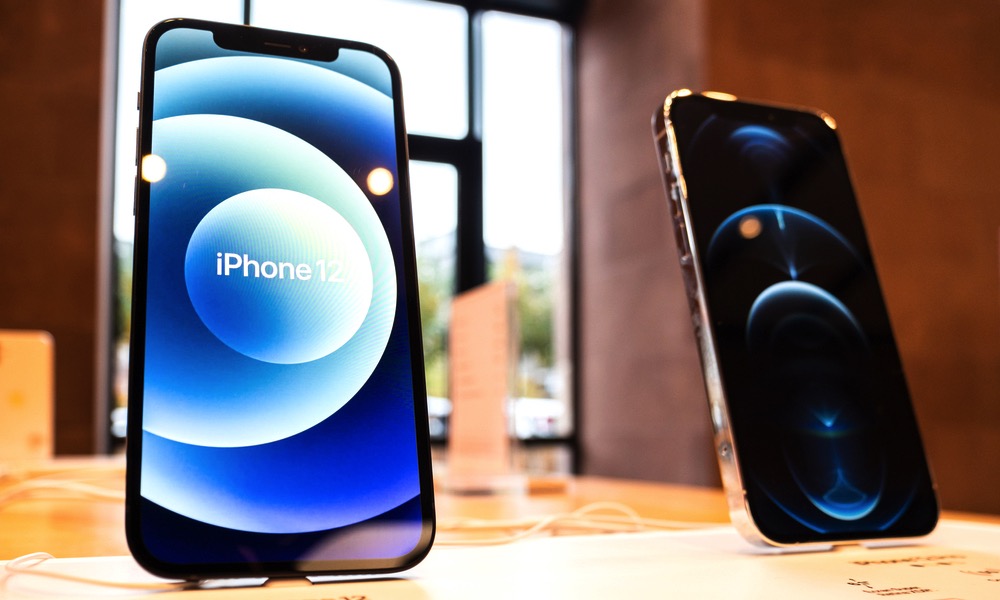Apple Threatens to Pull Out of the UK Over Massive $7 Billion Patent Dispute
 Credit: Hadrian / Shutterstock
Credit: Hadrian / Shutterstock
Toggle Dark Mode
While Apple is certainly no stranger to patent litigation, a big new patent dispute in the UK now has its lawyers upping the stakes to a whole new level.
According to UK financial site This is Money, Apple’s lawyers appear to be going for “the nuclear option” in response to a judgement that could see the tech giant paying over £5 billion (~$7 billion USD) in court-mandated royalties for alleged patent infringement.
This latest dispute comes from Optis Cellular Technology, a patent litigation company — otherwise known as a “patent troll” — that holds the rights to several standards-essential LTE patents. Along with its sister companies, Optis Wireless and PanOptis, Optis has been engaging in a series of lawsuits alleging infringement of its patents in an attempt to collect royalties.
To be clear, like most patent trolls, Optis has not actually invented anything. Instead, it’s what’s called a “non-practicing entity” — a company whose sole business is to buy up portfolios of patents invented by others and generate revenue by suing everybody it can find that happens to be using them.
Apple and Optis already had one run-in last year, when a jury in East Texas ordered the company to pay $506 million in past royalties to PanOptis and related companies for “willfully infringing patents covering 4G LTE technology.”
In that earlier case, PanOptis claimed that it had attempted to negotiate a licensing deal with Apple for the patents, but that Apple didn’t make a good-faith effort to come to the table.
Ultimately, however, this case was overturned on appeal, with a U.S. District Court Judge ruling that Apple was unable to present the argument that Optis’ demands for royalties were inconsistent with the FRAND requirement — a rule that says that any patents that are standard-essential like cellular communications must be licensed on “fair, reasonable, and non-discriminatory” terms.
In other words, when it comes to patents for essential things like 4G/LTE technology, U.S. patent laws prevent patent holders from playing games with licensees or holding them hostage by charging exorbitant rates.
In this case, the patents in question are critical to the implementation of the 4G communications standard, meaning that no smartphone manufacturer can create a 4G/LTE capable smartphone without a license from Optis.
‘Commercially Unacceptable’ Fees
Unfortunately, this hasn’t stopped Optis from taking its case to the UK courts, where it seems to have found a more sympathetic ear — and it’s going for broke asking for billions in royalty payments.
The key to the UK case is that while most patent lawsuits only affect royalties generated within the jurisdiction of the court, it appears that the UK Supreme Court ruled last year that UK courts can set the rate that a company like Apple should pay for all of its patents worldwide — even though it’s still only considering the infringement of patents in the UK.
At a hearing in January, a UK court justice warned Apple that “it might be disappointed” at the rate that gets set by a judge — a rate that would apply to the royalties that Apple would be required to pay to Optis for all of its iPhone, iPad, and Apple Watch sales globally — not just those made in the UK.
Naturally, Apple considers this to be a serious overreach of the court’s authority, and while the trial isn’t expected to begin until July 2022, its lawyers have already warned that the company is prepared to leave the UK market entirely if the court sets terms that are “commercially unacceptable.”
Apple’s comments come as the company prepares for a court case later this month, when it will be asked to make a legally binding pledge to abide by whatever payout rate is decided at next year’s trial. When questioned by a UK justice about whether it was “even remotely possible” that Apple would leave the UK market, Apple’s lawyer Marie Demetriou countered that it’s definitely something the company is considering.
Apple’s position is it should indeed be able to reflect on the terms and decide whether commercially it is right to accept them or to leave the UK market. There may be terms that are set by the court which are just commercially unacceptable.
On the flip side, if Apple refuses to agree to abide by the UK court’s rulings, it could be banned from selling all infringing products in the UK anyway, at which point Apple might decide that it’s not worth continuing to do business in a country where it’s only allowed to sell non-cellular devices like Macs and Wi-Fi-only iPads.
Further, with UK courts able to make a judgement on worldwide royalty payments, the amount ordered could exceed Apple’s profits in the UK, in which case, the UK becomes a money-losing market for Apple.
While Apple’s presence in the UK market is certainly about more than just raw dollars — there’s political, social, and cultural capital at stake here as well — it’s not outside the realm of possibility that Apple could choose to stop doing business in the UK to make a point.
It’s also worth keeping in mind that Optis and its cohorts aren’t likely to stop at Apple. The patents in question cover the 4G/LTE technologies that are used in every modern smartphone, and if the UK courts were to find in favour of Optis in the case against Apple, it would almost certainly use that judgement as a precedent to go after every other smartphone marker for similar fees.






